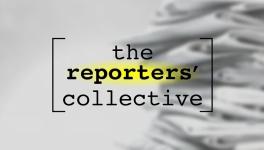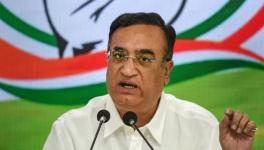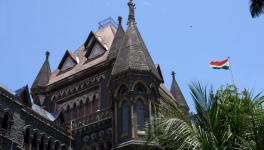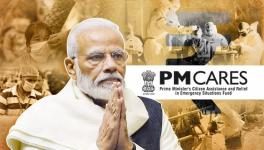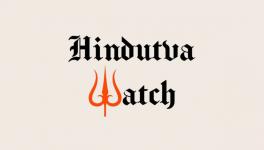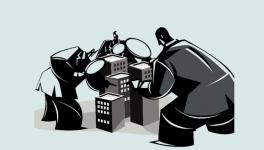BBC Office Raid: The Limits of a Tax Survey

Representational Image.
Even for a ‘survey’, the tax authority’s powers are packed with caveats.
—–
Less than a month after the Union government deployed its emergency powers under the Information Technology Act in an attempt to bury a documentary on the Prime Minister, the Income Tax Department has conducted a ‘survey’ of the British Broadcasting Corporation’s (BBC) offices in Delhi and Mumbai in an apparently retaliatory move.
What are the legal provisions governing such a survey?
The ‘survey’, which was yet to be concluded by the time this report was written, is being conducted under Section 133A of the Income-tax Act, 1961 which, primarily, allows an income tax authority to inspect books of account and other documents, and require any information to be furnished which may be relevant to any proceeding under the Act.
A survey under Section 133A is distinct from a “search and seizure” operation under Section 132, under which the powers of the tax authority are broader.
What are the legally prescribed limits on such a survey?
As per Section 133A, an income tax authority must be afforded the necessary facility to inspect books of account and other documents, check stock or other valuable articles and furnish any information that may be useful or relevant to any proceeding under the Income-tax Act.
No books of account or other documents can be impounded by an income tax authority without first recording reasons for doing so. In addition to this, the tax authority cannot retain in their custody any confiscated documents beyond a period of 15 days without obtaining the approval of higher tax authorities, such as the Principal Chief Commissioner or the Chief Commissioner or the Principal Director General of Income Tax.
Also, an income tax authority is allowed to enter a premises and conduct a ‘survey’ only during the hours at which such a place is open for the conduct of business, reads a sub-section of the provision.
As a further caveat, an income tax authority can “on no account” remove or cause to remove any cash, stock “or other valuable article or thing”. This holds significance in light of multiple reports suggesting that the phones and laptops of employees of the BBC were confiscated during the ‘survey’ on February 14.
Was due procedure followed in the BBC office ‘survey’?
A report by Caravan magazine, quoting an employee of the BBC office in Delhi, claims that computers of all employees were manually searched through by the surveying officials to look for words such as ‘Benami’, ‘Hawala’, ‘International Taxation’, and ‘black money’, among others. The said report states that officials also quizzed them on individual invoices in their possession, which are routine documents they file for office and reporting expenses.
Searching through electronic devices by a tax authority may be in line with the provisions of the Information Technology Act, 2000. Section 7A of the Act allows the audit of documents, records and information maintained in electronic form where a provision for audit of documents (in physical form) exists under ‘any law’; such as it does under Section 133 of the Income-tax Act.
Therefore, even though a tax official may require an electronic device to be accessed and thereafter take copies of documents, they have not been provided the power to seize the device on which such a document is stored.
In addition, no person can be examined on oath under Section 133, a power which the tax authority has under section 132 (pertaining to ‘search and seizure’) of the Income-tax Act. This holds relevance since the lack of this power deprives the tax authority from using any statement acquired during a ‘survey’ from being presented in court as evidence, as held by the Kerala High Court in Paul Mathews & Sons versus Commissioner of Income Tax (2003) and confirmed by the Madras High Court in Commissioner of Income Tax versus S. Khader Khan (2007).
The BBC has been accused of “persistent and deliberate” violations of transfer pricing norms, which are governed by the Income-tax Act, and for diverting “significant” amounts of profits from India to abroad. These charges were made known for the first time on February 14, though not officially published by the Income Tax Department, which has yet to publicly release a statement about the ‘survey’.
Tushar Kohli is a journalist based in Delhi and Mohali.
Get the latest reports & analysis with people's perspective on Protests, movements & deep analytical videos, discussions of the current affairs in your Telegram app. Subscribe to NewsClick's Telegram channel & get Real-Time updates on stories, as they get published on our website.









